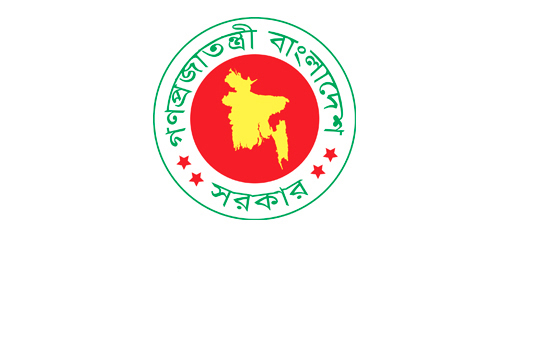DHAKA, June 16, 2020 (BSS) – The government has introduced a zoning system to prevent the spread of coronavirus (COVID-19) in the country.
In consultation with the Directorate General of Health Services (DGHS), the zoning system was initially introduced in Gazipur, Narayangani and Narsingdi districts, Purba Rajabazar of Dhaka North City Corporation (DNCC) and Wari of Dhaka South City Corporation (DSCC) on experimental basis, an official handout said.
Once the zoning system works effectively to contain the spread of coronavirus, it will be introduced in other areas of the country, which will help fight the invisible enemy, it added.
After 66 days of general holidays announced to contain coronavirus transmission, the government on May 31 resumed different economic activities in the country on a limited scale considering the lives and livelihoods of the common people.
But, the handout said, the rate of coronavirus infection went up recently in different areas of the country. Against this backdrop, the government on June 10 issued some instructions under the Infectious Diseases (Prevention, Control and Elimination) Act 2018 aiming to stop the virus transmission in the country.
Considering the people’s vulnerability to COVID-19, the main objective of these instructions is to identify the country’s different small or large areas as red, yellow and green zones.
Following the guidelines and strategy of the government, different district administrations and city corporations are monitoring COVID-19 scenario at the local level. Upon consultation with the DGHS, the local authorities are taking initiatives to implement zoning system to contain the spread of coronavirus, the handout said.
According to the Infectious Diseases (Prevention, Control and Elimination) Act 2018, the district civil surgeon has been given the authority to declare a zone in a specific area. The zoning activities would be implemented with support from local public representatives, civil administration, law enforcers, army personnel and volunteers.
The local administration and local committee on COVID-19 will jointly decide which areas or parts of an area will be included in the zoning system.
If necessary, the authorities concerned will declare any area of the country as a red zone. That is why the announcement of a red zone or changing a red zone (status) is a continuous process, said the handout.
A number of restrictions have been imposed on people living in red zones. Farmers can work in their crop fields in the red zones following the health guidelines, while people will be able to work in rural factories and agro-processing firms. But all the urban factories will remain closed in red zones.
No public gathering is allowed and only the sick people would be able to go to hospitals in red zones.
In case of emergency, a person can go outside his or her home following the health guidelines but no rickshaw, van, CNG-run auto-rickshaw, taxi and private car is allowed.
No transport or water vessel can run on roads, rail routes and waterways in the red zone areas. But good-carrying water vessels can run in red zones at night.
People’s movement will strongly be controlled in the red zone areas by setting up entrance and exist points, the handout said.
Grocery and medicine shops, restaurants and eateries are allowed to open in red zones, while shopping malls, cinema halls, gymnasiums, sports complexes and recreation centres will remain closed.
People can withdraw money from ATM booths or deposit to it following the health guidelines. But banking could continue on limited scale in the red zones.
Adequate COVID-19 samples will be tested in the red zone areas. The detected patients must stay in home or institutional isolations.
Only the officials and employees of mosques or other places of worship can offer prayers in their respective places of worship, maintaining social distancing.
A red zone will be in force for 21 days in general. The red zones (status) will be changed if the situation improves, according to the handout.
In addition, some general rules must be followed in all the regions of Bangladesh, including the red zones.
It is mandatory for all to wear mask. Hand-washing, disinfection and hygiene and maintaining social distancing should be ensued.
Arrangements should be made for coronavirus detection and isolation and treatment for the COVID-19 patients.
Contact tracing and quarantines must be ensued for the people who come in contact with an infected person.
Healthcare centres, hospitals and emergency services will remain open. Patient-carrying vehicles and ambulance can run with the permission of the authorities concerned.
All types of educational institutions – schools, colleges and coaching centres – will remain closed until the further notice.
Besides, the notification issued from Cabinet Division on June 15 last must be followed, the handout said.



